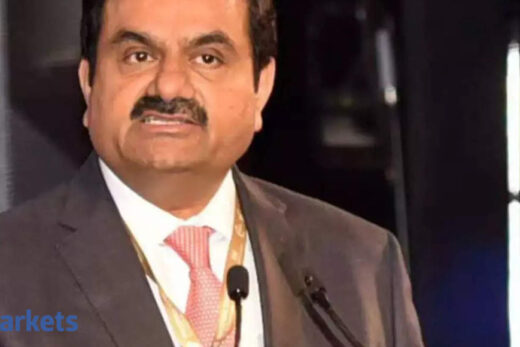The new report — Business Responsibility and Sustainability Report (BRSR)– will replace the existing Business Responsibility Report (BRR).
The move is expected to bring in greater transparency and enable market participants to identify and assess sustainability-related risks and opportunities, Sebi said in a statement.
Under BRSR, listed entities need to disclose about an overview of the entity’s material ESG (environmental, social and governance) risks and opportunities, approach to mitigate or adapt to the risks along with financial implications of the same.
In addition, sustainability related goals and targets and performance against the same need to mentioned in the report, it added.
Environment related disclosures cover aspects such as resource usage (energy and water), air pollutant emissions, green-house (GHG) emissions, transitioning to circular economy, waste generated and waste management practices, bio-diversity.
Social related disclosures would cover the workforce, value chain, communities and consumers.
In the social related disclosure, Sebi said entities need to disclose about gender and social diversity including measures for differently abled employees and workers, turnover rates, median wages, welfare benefits to permanent and contractual employees / workers, occupational health and safety, trainings.
At communities level, listed entities will have to make disclosures on Social Impact Assessments (SIA), Rehabilitation and Resettlement, Corporate Social Responsibility, among others.
In the case of consumers, the regulator said listed entities need to disclose on product labelling, product recall, consumer complaints in respect of data privacy, cyber security among others.
The BRSR will be applicable on the top 1,000 listed entities by market capitalization.
In order to give time to companies to adapt to the new requirements, Sebi said the reporting would be on voluntary basis for financial year 2021-22 and on a mandatory basis from 2022-23.
However, companies are encouraged to be early adopters of BRSR, thus being at the forefront of sustainability reporting, the regulator said.
Sebi said it was one of the early adopters of sustainability reporting for listed entities amongst its global peers. The filing of the BRR containing ESG disclosures was first introduced for listed entities in 2012 and since then, a number of developments have taken place.
With the adoption of the Paris Agreement on climate change and UN sustainable development goals, adapting to and mitigating climate change impact and transitioning to sustainable economies have emerged as major issues globally, the regulator pointed out.
The pandemic has also accelerated the relevance of ESG considerations to investors resulting in increased awareness of investors and a shift towards sustainable investing. The same is reflected in the spurt in new launches of ESG themed mutual funds and growth in assets of such schemes, including in India, it added.
As ESG investing becomes more mainstream, disclosure requirements need to keep pace with this change and the BRSR is significant step towards this direction, Sebi noted.
BRSR is an initiative towards ensuring that investors have access to standardized disclosures on ESG parameters.
“Access to relevant and comparable information, will enable investors to identify and assess sustainability-related risks and opportunities of companies and make better investment decisions,” Sebi said.
At the same time, companies will be able to better demonstrate their sustainability objectives, position and performance resulting into long term value creation, it added.
Overall, higher standards of ESG disclosures and transparency, will help in attracting more capital and investment.
Listed entities already preparing and disclosing sustainability reports based on internationally accepted reporting frameworks may cross-refer the disclosures made under such framework to the disclosures sought under BRSR.
The reporting requirements come after the board of Sebi approved a proposal on this regard in March.
These requirements were finalized based on feedback received from public consultation and extensive deliberations with stakeholders including corporates, institutional investors, Sebi said.
Further, a benchmarking exercise with internationally accepted disclosure frameworks was also undertaken.



